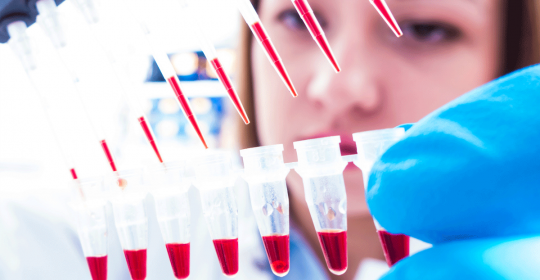
Stem Cell Therapy in Multiple Sclerosis – first-of-its-kind study
At the annual meeting of the American Academy of Neurology (AAN) researchers presented a new study about stem cell therapy in multiple sclerosis. MSC-NPs was safe and well tolerated. The stem cell treatment might be a new option for patients suffering from progressive multiple sclerosis (MS). It’s called Intrathecal administration of autologous mesenchymal stem cell-derived neural progenitors (MSC-NPs).
What does that mean?
Intrathecal administration of autologous mesenchymal stem cell-derived neural progenitors (IT-MSC-NPs) is an experimental approach to treat multiple sclerosis (MS). Researchers extract bone marrow of the patient and isolate specific mesenchymal cells, so called “neural progenitor cells”. The cells are processed and multiplied in the laboratory and then injected (up to 10 million cells per injection) into the patient again. Intrathecal means into a space around the spinal cord which is connected to the brain.
The Study
The small phase I clinical trial included only 20 multiple sclerosis patients. Each received 3 doses of IT-MSC-NPs.
The Results
Neurological improvements were observed while no serious adverse evets were reported. 65% of patients had minor side effects including headache and fever.
The Conclusion
The authors of the study conclude that IT-MSC-NPs as treatment for MS “appears safe and well tolerated”. However, the study was a phase I trial. Future research has to show if the promising results can be verified.
MS Multiple Sclerosis – German Neuroscience Center Dubai
Vitamin D plays a part in regulating the immune system in the human body. As Multiple Sclerosis is an immune disease, Vit D could have a protective/modulating effect that influences the disease positively. read more Multiple Sclerosis in UAE | Too Less Sun?
Reference: AAN
Pictures: Fotolia

